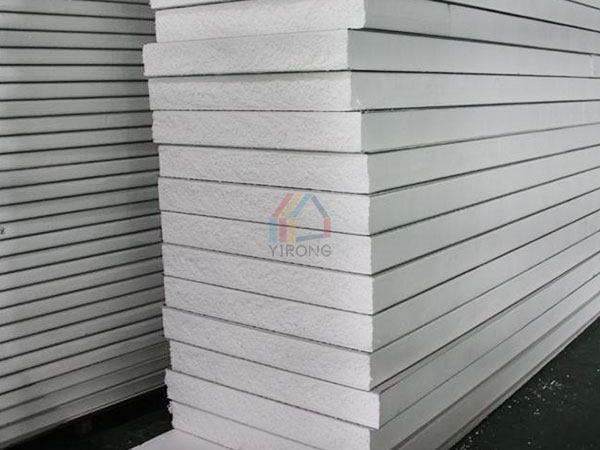Zhengzhou, Henan Province, China
Now Contact: Do you need PU/EPS/Rock Wool sandwich panels?
Zhengzhou, Henan Province, China
Now Contact: Do you need PU/EPS/Rock Wool sandwich panels?
Polystyrene sandwich panel is a common building insulation material that has attracted much attention due to its excellent insulation properties and wide range of applications. Understanding the insulation effect and practical application of polystyrene sandwich panel is of great significance for improving building energy efficiency and improving indoor environment.
Polystyrene sandwich panels are mainly composed of polystyrene foam core material and upper and lower steel plates. This kind of board has the characteristics of light weight, thermal insulation, heat insulation, sound insulation, and easy processing, and is widely used in building exterior walls, roofs, underground engineering and other fields.
Thermal insulation effect is one of the most important properties of polystyrene sandwich panels. Its thermal insulation principle is mainly to block heat flow transfer through the multi-layer structure of polystyrene foam core material. This material has a low thermal conductivity coefficient, which can effectively prevent indoor and outdoor heat exchange and improve the thermal insulation performance of the building. In addition, the thermal insulation effect of polystyrene sandwich panels is also affected by factors such as its thickness, density, and air layer thickness.

In order to accurately evaluate the thermal insulation effect of polystyrene sandwich panels, thermal performance test methods are usually used for measurement. Common test methods include flat plate method, heat flow meter method, infrared thermal imaging camera method, etc. Through these test methods, multiple indicators such as thermal conductivity coefficient, heat storage coefficient, condensation and condensation of polystyrene insulation sandwich panels can be measured to evaluate the quality of its thermal insulation performance.
In practical applications, polystyrene insulation sandwich panels are mainly used in building exterior walls, roofs, underground engineering and other parts. In building exterior wall applications, polystyrene sandwich panels can significantly improve the thermal insulation performance of the wall and reduce energy consumption. At the same time, its excellent sound insulation effect can also improve the indoor acoustic environment. In roofing applications, polystyrene sandwich panel can effectively prevent indoor heat loss and improve the thermal insulation performance of the roof. In underground engineering applications, polystyrene insulation sandwich panels can prevent underground moisture from intruding, while improving the thermal insulation effect of the ground, creating a comfortable and pleasant living environment for people.
In short, polystyrene sandwich panel as an excellent thermal insulation material, play a decisive role in the construction field. Its excellent thermal insulation performance and wide range of applications make it an important choice for current building energy-saving renovation and indoor environment improvement. As the requirements for building energy efficiency and indoor environment continue to increase, the advantages of polystyrene sandwich panels will become increasingly apparent. Therefore, polystyrene sandwich panels will still have broad development prospects in the future construction industry.